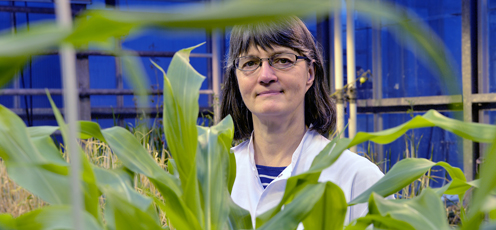
Visiting WISB from the DynaMo Center in the Department for Plant and Environmental Sciences at the University of Copenhagen on Wednesday 1st November, Prof Barbara Ann Halkier will be speaking about pathway and transport engineering when using glucosinolates as case study.
If you are interested in attending Barbara’s talk, please email wisb@warwick.ac.uk.
Abstract of Barbara’s talk:
Cruciferous vegetables are unique in synthesizing the natural products glucosinolates. Substantial attention is given to particularly the glucosinolate glucoraphanin that is present in broccoli, as it is generally thought to be the major bioactive compound associated with the cancer-preventive effects of broccoli. The health-promoting effects have resulted in a strong desire to increase the intake of glucoraphanin. Establishment of a microbial production of glucoraphanin will provide a stable, rich source of this compound and enable intake of well-defined doses. Using transient expression in tobacco, we have shown the feasibility of engineering in a heterologous plant the seven genes pathway of indole glucosinolate, and the 12 genes pathway of the glucosinolate glucoraphanin. In yeast and E. coli, we have successfully engineered the benzyl glucosinolate pathways. However, engineering of the 12 genes glucoraphanin pathway poses challenges. Latest development in our goal towards microbial production of glucoraphanin will be discussed. Transport engineering is receiving increased attention as a novel means to control accumulation of specific metabolites. In Brassica crops, glucosinolates are anti-nutritional factors that reduce the nutritional value of the high-quality protein-rich seed meal that is a byproduct in the oil production. Recently, we showed that by mutating two glucosinolate transporters it was possible to eliminate glucosinolates from seeds of the model plant Arabidopsis. As an example of translational biology, we have successfully translated the gtr loss-of-function phenotype from the Arabidopsis model plant to Brassica crops, – a novel and potentially generic transport engineering approach for reducing seed glucosinolate content in other oilseed crops.
Nour-Eldin HH et al. (2017) Reduction of antinutritional glucosinolates in Brassica oilseeds by mutation of genes encoding transporters. Nature Biotechnology, 35, 377
Further information about Barbara’s research can be found here.